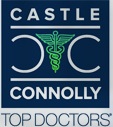
The shoulder is a common site of injury for professional athletes, weekend warriors that lift weights, or anyone that does a lot of overhead activity. The pain may be caused due to an acute injury or a gradual wear and tear of the joint. Here are a few instances when you should to see your doctor about shoulder pain:
Shoulder pain associated with a traumatic injury. A slip and fall onto your shoulder or traumatic injury that results in sudden shoulder pain with inability to move the shoulder should be evaluated by your doctor as soon as possible.
Progressively worsening shoulder pain. Shoulder pain or weakness in certain positions, such as reaching overhead, away from your body, or behind your back are symptoms indicative of an impingement, irritation, or tear of the rotator cuff. If not treated promptly, the tear could worsen resulting in pain with any activity and even pain at night.
Shoulder pain that radiates down the arm. This may be due to pinching of nerves in the front of the shoulder or in the cervical spine region.
Shoulder pain associated joint dislocation. If your shoulder tends to become dislocated partially or completely on a regular basis, physical therapy can help strengthen the supporting muscles and prevent the dislocation. However, if the dislocation was caused due to a traumatic injury, surgery may be necessary.
Shoulder pain associated with loss of motion or weakness. This could be due to a frozen shoulder or an underlying condition that is making shoulder motion difficult.
Treatment options for shoulder pain vary depending on the cause and severity of the shoulder pain. Book an appointment with Dr. Ryan Colley if you have shoulder pain that is keeping you from doing the things you enjoy.
Dr. Ryan Colley is an orthopedic surgeon specializing in shoulder and elbow surgery. He is also certified in robotic knee replacement which significantly improves surgical outcomes. He focuses on Sports Medicine and all aspects of upper extremity joint replacement, reconstruction, trauma, and arthroscopy. Dr. Colley spends time with patients to fully understand the activities they are trying to get back to before recommending personalized nonsurgical or surgical solutions.





 Book an Appointment
Book an Appointment
 Patient Portal
Patient Portal